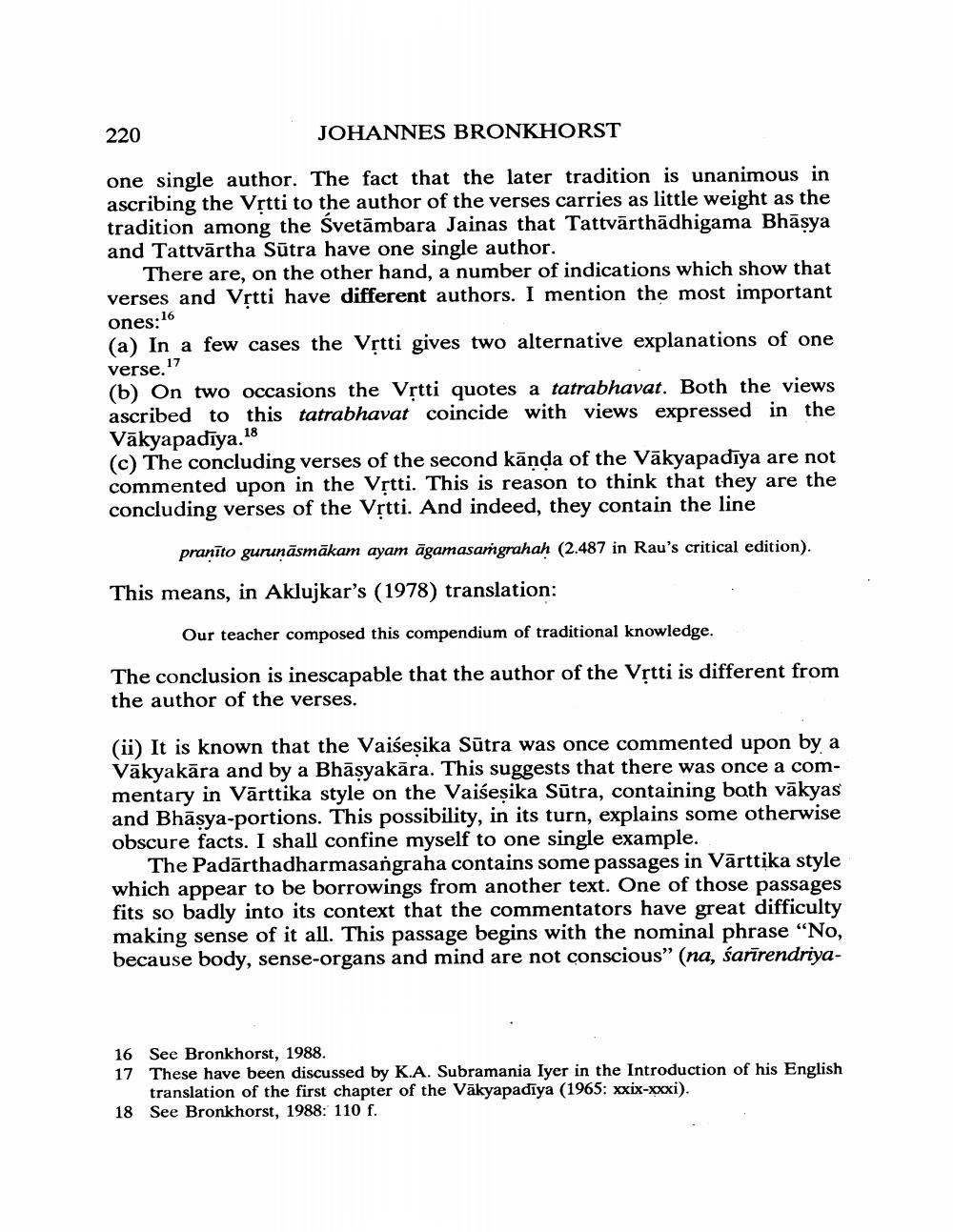________________
220
JOHANNES BRONKHORST
one single author. The fact that the later tradition is unanimous in ascribing the Vrtti to the author of the verses carries as little weight as the tradition among the Svetāmbara Jainas that Tattvārthādhigama Bhāsya and Tattvārtha Sūtra have one single author.
There are, on the other hand, a number of indications which show that verses and Vịtti have different authors. I mention the most important ones:16 (a) In a few cases the Vștti gives two alternative explanations of one verse." (b) On two occasions the Vștti quotes a tatrabhavat. Both the views ascribed to this tatrabhavat coincide with views expressed in the Vākyapadīya. 18 (c) The concluding verses of the second kānda of the Vākyapadiya are not commented upon in the Vstti. This is reason to think that they are the concluding verses of the Vrtti. And indeed, they contain the line
pranīto gurunāsmākam ayam āgamasaṁgrahah (2.487 in Rau's critical edition).
This means, in Aklujkar's (1978) translation:
Our teacher composed this compendium of traditional knowledge.
The conclusion is inescapable that the author of the Vrtti is different from the author of the verses.
(ii) It is known that the Vaiseșika Sūtra was once commented upon by a Vākyakāra and by a Bhāṣyakāra. This suggests that there was once a commentary in Vārttika style on the Vaiseșika Sūtra, containing both vākyas and Bhāsya-portions. This possibility, in its turn, explains some otherwise obscure facts. I shall confine myself to one single example.
The Padārthadharmasangraha contains some passages in Vārttika style which appear to be borrowings from another text. One of those passages fits so badly into its context that the commentators have great difficulty making sense of it all. This passage begins with the nominal phrase "No, because body, sense-organs and mind are not conscious" (na, śarīrendriya
16 17
See Bronkhorst, 1988. These have been discussed by K.A. Subramania Iyer in the Introduction of his English translation of the first chapter of the Vākyapadiya (1965: xxix-xxxi). See Bronkhorst, 1988: 110 f.
18




